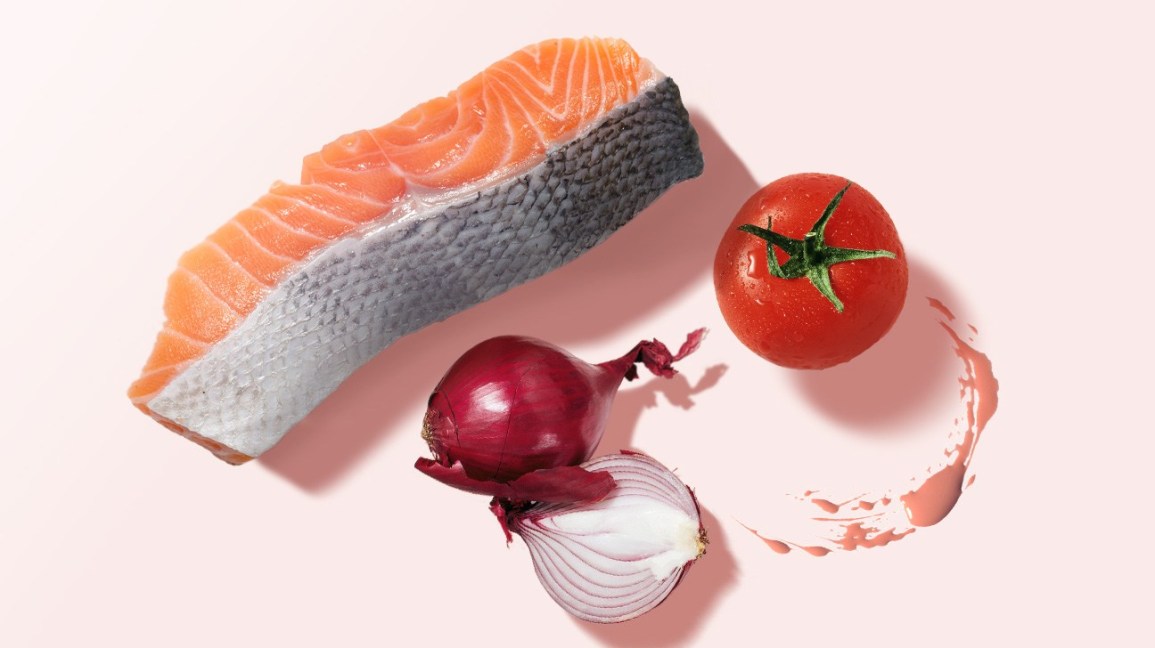Carbs are highly controversial these days.
The dietary guidelines suggest that we get about half of our calories from carbohydrates.
On the other hand, some claim that carbs cause obesity and type 2 diabetes, and that most people should be avoiding them.
There are good arguments on both sides, and it appears that carbohydrate requirements depend largely on the individual.
Some people do better with a lower carb intake, while others do just fine eating plenty of carbs.
This article takes a detailed look at carbs, their health effects and how you can make the right choices.
What Are Carbs?
Carbs, or carbohydrates, are molecules that have carbon, hydrogen and oxygen atoms.
In nutrition, “carbs” refers to one of the three macronutrients. The other two are protein and fat.
Dietary carbohydrates can be split into three main categories:
- Sugars: Sweet, short-chain carbohydrates found in foods. Examples are glucose, fructose, galactose and sucrose.
- Starches: Long chains of glucose molecules, which eventually get broken down into glucose in the digestive system.
- Fiber: Humans cannot digest fiber, although the bacteria in the digestive system can make use of some of them.
The main purpose of carbohydrates in the diet is to provide energy. Most carbs get broken down or transformed into glucose, which can be used as energy. Carbs can also be turned into fat (stored energy) for later use.
Fiber is an exception. It does not provide energy directly, but it does feed the friendly bacteria in the digestive system. These bacteria can use the fiber to produce fatty acids that some of our cells can use as energy.
Sugar alcohols are also classified as carbohydrates. They taste sweet, but usually don’t provide many calories.
BOTTOM LINE:Carbohydrates are one of the three macronutrients. The main types of dietary carbohydrates are sugars, starches and fiber.
“Whole” vs “Refined” Carbs
Not all carbs are created equal.
There are many different types of carbohydrate-containing foods, and they vary greatly in their health effects.
Although carbs are often referred to as “simple” vs “complex,” I personally find “whole” vs “refined” to make more sense.
Whole carbs are unprocessed and contain the fiber found naturally in the food, while refined carbs have been processed and had the natural fiber stripped out.
Examples of whole carbs include vegetables, whole fruit, legumes, potatoes and whole grains. These foods are generally healthy.
On the other hand, refined carbs include sugar-sweetened beverages, fruit juices, pastries, white bread, white pasta, white rice and others.
Numerous studies show that refined carbohydrate consumption is associated with health problems like obesity and type 2 diabetes .
They tend to cause major spikes in blood sugar levels, which leads to a subsequent crash that can trigger hunger and cravings for more high-carb foods .
This is the “blood sugar roller coaster” that many people are familiar with.
Refined carbohydrate foods are usually also lacking in essential nutrients. In other words, they are “empty” calories.
The added sugars are another story altogether, they are the absolute worst carbohydrates and linked to all sorts of chronic diseases .
However, it makes no sense to demonize all carbohydrate-containing foods because of the health effects of their processed counterparts.
Whole food sources of carbohydrates are loaded with nutrients and fiber, and don’t cause the same spikes and dips in blood sugar levels.
Hundreds of studies on high-fiber carbohydrates, including vegetables, fruits, legumes and whole grains show that eating them is linked to improved metabolic health and a lower risk of disease .
BOTTOM LINE:
Not all carbs are created equal. Refined carbs are associated with obesity and metabolic diseases, but unprocessed carbohydrate foods are very healthy.
Low-Carb Diets Are Great For Some People
No discussion about carbs is complete without mentioning low-carb diets.
These types of diets restrict carbohydrates, while allowing plenty of protein and fat.
Over 23 studies have now shown that low-carb diets are much more effective than the standard “low-fat” diet that has been recommended for the past few decades.
These studies show that low-carb diets cause more weight loss and lead to greater improvement in various health markers, including HDL (the “good”) cholesterol, blood triglycerides, blood sugar, blood pressure and others .
For people who are obese, or have metabolic syndrome and/or type 2 diabetes, low-carb diets can have life-saving benefits.
This should not be taken lightly, because these are currently the biggest health problems in the world, responsible for millions of deaths per year.
However, just because low-carb diets are useful for weight loss and people with certain metabolic problems, they are definitely not the answer for everyone.
BOTTOM LINE:
Over 23 studies have shown that low-carbohydrate diets are very effective for weight loss and lead to improvements in metabolic health.
“Carbs” Are Not The Cause of Obesity
Restricting carbs can often (at least partly) reverse obesity.
However, this does not mean that the carbs were what caused the obesity in the first place.
This is actually a myth, and there is a ton of evidence against it.
While it is true that added sugars and refined carbs are linked to increased obesity, the same is not true of fiber-rich, whole-food sources of carbohydrates.
Humans have been eating carbs for thousands of years, in some form or another. The obesity epidemic started around 1980, and the type 2 diabetes epidemic followed soon after.
Blaming new health problems on something that we’ve been eating for a very long time simply doesn’t make sense.
Keep in mind that many populations have remained in excellent health while eating a high-carb diet, such as the Okinawans, Kitavans and Asian rice eaters.
What they all had in common was that they ate real, unprocessed foods.
However, populations that eat a lot of refined carbohydrates and processed foods tend to be sick and unhealthy.
BOTTOM LINE:
Humans have been eating carbs since long before the obesity epidemic, and there are many examples of populations that have remained in excellent health while eating diets high in carbs.
Carbs Are Not “Essential,” But Many Carb-Containing Foods Are
Incredibly Healthy
Many low-carbers claim that carbs are not an essential nutrient.
This is technically true. The body can function without a single gram of carbohydrate in the diet.
It is a myth that the brain needs 130 grams of carbohydrate per day.
When we don’t eat carbs, part of the brain can use ketones for energy. These are made out of fats (20).
Additionally, the body can produce the little glucose the brain needs via a process called gluconeogenesis.
However, just because carbs are not “essential” – that doesn’t mean they can’t be beneficial.
Many carb-containing foods are healthy and nutritious, such as vegetables and fruits. These foods have all sorts of beneficial compounds and provide a variety of health benefits.
Although it is possible to survive even on a zero-carb diet, it is probably not an optimal choice because you’re missing out on plant foods that science has shown to be beneficial.
BOTTOM LINE:
Carbohydrates are not an “essential” nutrient. However, many carb-rich plant foods are loaded with beneficial nutrients, so avoiding them is a bad idea.
How to Make the Right Choices
As a general rule, carbohydrates that are in their natural, fiber-rich form are healthy, while those that have been stripped of their fiber are not.
If it’s a whole, single ingredient food, then it’s probably a healthy food for most people, no matter what the carbohydrate content is.
With this in mind, it is possible to categorize most carbs as either “good” or “bad” – but keep in mind that these are just general guidelines.
Things are rarely ever black and white in nutrition.
Good Carbs:
- Vegetables: All of them. It is best to eat a variety of vegetables every day.
- Whole fruits: Apples, bananas, strawberries, etc.
- Legumes: Lentils, kidney beans, peas, etc.
- Nuts: Almonds, walnuts, hazelnuts, macadamia nuts, peanuts, etc.
- Seeds: Chia seeds, pumpkin seeds.
- Whole grains: Choose grains that are truly whole, as in pure oats, quinoa, brown rice, etc.
- Tubers: Potatoes, sweet potatoes, etc.
People who are trying to restrict carbohydrates need to be careful with the whole grains, legumes, tubers and high-sugar fruit.
Bad Carbs:
- Sugary drinks: Coca cola, Pepsi, Vitaminwater, etc. Sugary drinks are some of the unhealthiest things you can put into your body.
- Fruit juices: Unfortunately, fruit juices may have similar metabolic effects as sugar-sweetened beverages.
- White bread: These are refined carbohydrates that are low in essential nutrients and bad for metabolic health. This applies to most commercially available breads.
- Pastries, cookies and cakes: These tend to be very high in sugar and refined wheat.
- Ice cream: Most types of ice cream are very high in sugar, although there are exceptions.
- Candies and chocolates: If you’re going to eat chocolate, choose quality dark chocolate.
- French fries and potato chips: Whole potatoes are healthy, but french fries and potato chips are not.
These foods may be fine in moderation for some people, but many will do best by avoiding them as much as possible.
BOTTOM LINE:
Carbs in their natural, fiber-rich form are generally healthy. Processed foods with sugar and refined carbs are extremely unhealthy.
Low-Carb Is Great For Some, But Others Function Best With Plenty of
Carbs
There is no one-size-fits-all solution in nutrition.
The “optimal” carbohydrate intake depends on numerous factors, such as age, gender, metabolic health, physical activity, food culture and personal preference.
If you have a lot of weight to lose, or have health problems like metabolic syndrome and/or type 2 diabetes, then you are probably carbohydrate sensitive.
In this case, reducing carbohydrate intake can have clear, life-saving benefits.
On the other hand, if you’re just a healthy person trying to stay healthy, then there is probably no reason for you to avoid “carbs” – just stick to whole, single ingredient foods as much as possible.
If you are naturally lean and/or highly physically active, then you may even function much better with plenty of carbs in your diet.
Different strokes for different folks.





